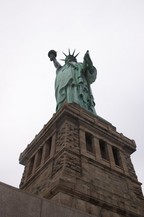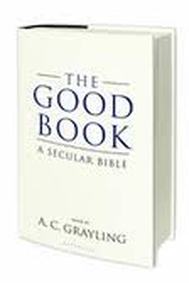
I carried that burning faith well into my twenties, before I discovered history and retired from politics. Now it is with mixed feelings that I discover that a Hollywood movie has been made about Mrs. Thatcher’s life. For starters, it’s too early to make a film like this. Emotions are too raw for it to be watched objectively, and the lady is too advanced in years to offer a fair rebuttal. The kind of sordid details that make a biopic worth watching can only offend her family. The inevitable absence of the stories of ordinary people caught up in the Thatcher Revolution will equally offend the rest of us. Margaret Thatcher did not single handedly drag Britain into the postmodern era. We got there ourselves by putting pins through our noses and marrying the servants. (At least, that’s how mummy did it).
But the movie does offer those of us who are the “children of Thatcher” an opportunity to reflect on her legacy, especially now that the Credit Crunch has called so much of it into question. Since leaving the world of my parents far behind, I’ve settled into an idiosyncratic brand of conservatism that allies me more comfortably with the Right. Yet, I'm still uncomfortable with what happened to Britain in the 1980s and I lack the enthusiasm that many of my peers feel for Mrs. Thatcher. My critique of her is a Tory one, but it is critical nonetheless.
Margaret Thatcher’s analysis of what was wrong with Britain in 1979 was spot on. Militant unions, spiraling costs, outdated infrastructure, punishing tax rates – all these things crippled our industrial base and prevented growth. Then, as now, we were spending too much and taking too little in. A restive Left complicated matters. The Seventies breed of trades-unionist had less interest in a good deal for their workers than they did in replacing Parliament with a Supreme Soviet. In this climate, the medicine that Thatcher applied was correct: tax cuts, regulations on union power, privatization. Her measures were sensible enough for most other Western governments to copy them. Even social democratic parties in Germany, Sweden, and Australia cut and privatized their way out of recession.
But the sense of social dislocation that resulted from these policies was far bigger in Britain than anywhere else. Reaganomics could be equally as harsh, but Reagan’s approval rating was consistently high and he died a father figure appropriated by both Left and Right. So why does Mrs. T get such bad press?
The answer partly lies in the severity of the early Eighties recession, which still looms large in the public imagination. As the government cut off subsidies to failing businesses, the fall in productivity was the largest since the Great Depression and unemployment tripled to three million. Rioting in major cities became ubiquitous and crime soared. Thatcher’s policies tore up a “postwar settlement” that had promised an ever increasing standard of living through full employment. Right-wing ideologues saw that settlement as a shameful sell-out to socialism that swapped empire for welfare state. But the settlement had endured for so long because it was supported by consecutive Conservative governments. Those Tory grandees felt a sense of duty to the men they had fought and died alongside in the trenches, so they accepted the consensus regardless of its financial cost.
By dismantling the postwar settlement in the name of rescuing Britain from decline, Margaret Thatcher became a more revolutionary figure than her Labour Party opponents. In an excellent piece in the Daily Telegraph, Charles Moore writes that she redefined conservatism as “insurrection”. By so doing, she created a paradox. The point of conservatism is to preserve as much as possible of the social order that we inherit. It can be necessary sometimes to throw out the bad to preserve the good – which is why previous Conservative governments emancipated the Catholics or expanded the franchise. But the idea of purposefully uprooting the social order – even to return to a pre-Lapsarian, pre-socialist past – contradicts the conservative instinct for cohesion and order. A more traditional Conservative leader might have responded to the crisis of 1979 by trying to build a new consensus for piecemeal reform – to defend what was best about the postwar settlement by discarding what was worst.
Instead, the Thatcher government regarded its task as starting the world over again, and they approached it with the unbending fervor of the ideologue. As much was recently acknowledged by Norman Tebbit, the former “enforcer” of Thatcherism. In 1981, in response to the suggestion that rioting was the natural response to unemployment, the then Employment Secretary said, “I grew up in the 30s with an unemployed father. He didn’t riot. He got on his bike and looked for work, and he kept looking ‘til he found it.” The paraphrase “on yer bike” became shorthand for the government’s firmness in the face of social protest. In 2009, Tebbit admitted that Thatcherism, particularly its conflict with the miners, had resurrected the British economy at a terrible price: “Black-hearted old Tory that I am, I recognize that in those mining towns and villages crime was very low, as was school truancy and yobbish behavior, because here there was a close-knit social structure in which there was a great deal of social stability. The rapid collapse of the coal mining industry did break up those communities in a terrible manner. I think it was a contributory factor to what was going on in society and the change in a lot of our old inner cities, where once, even if you were Norman Tebbit, you could walk safely through the streets.”
It should be stressed that the decline of the mining and industrial sectors was inevitable and germane to the Western world: Thatcher didn’t start it and she couldn’t have stopped it. But something about her government gave the impression that she didn’t really care about it, that her policies were class war masquerading as public policy. It wasn’t just the brutalism of her manifesto, or the fact that she was (inaccurately) quoted as saying there was “no such thing as society”. It was the lady herself. Her terrifying, patiently rehearsed vowels rang with the fiery anger of the Puritan. Her frightening stare barely contained the rage of the overtaxed haves against the indolence of the have nots. She was the silent majority personified, on the phone yet again to complain about the late delivery of the post or the foul language of the garbage men. Such a Conservative woman is infinitely more chilling than their male counterparts. She could not be mellowed by Rotary Bridge or public school frolics. She was the revolutionary vanguard of a late-to-liberation, female bourgeoisie.
Since 1945, Socialism and the welfare state have been responsible for the deaths of many great British characteristics, particularly frugality and chivalry. But Capitalism has done a lot of damage, too. The deregulated marketplace has brought competition, but also ugly chain stores, a taste for drugs, pornography, violent television, avarice, and materialism. Post-Thatcher, the Conservative Party seemed to lose sight of the fact that the freedom to make money isn’t the only pillar of the Good Society (although it’s a strong one). Ask a Conservative what kind of society they’d like to live in and they’ll generally identify the 1950s. This is highly ironic, because the faithful, decent national community that we imagine the 1950s to have been was also economically highly regulated and strongly wedded to the postwar consensus that Margaret Thatcher tore up.
If there is a psychological problem with the post-Thatcher generation of Conservatives, it is that they lack the emotional condition that forged the postwar settlement. I don’t expect them to endorse it or revive it, but the kind of Tories who signed up to it in the 1950s were men and women who had greater sympathy for the Britain of yesterday and today. They took pride in Church and Empire and they loved the people who had stood by them at Ypres and Dunkirk. They governed Britain because they felt they owed it something. They were burdened, even blinded, by duty. Mrs. Thatcher had her own faith, and it was strong enough to pull Britain out of the abyss. But I see little such passion or compassion in George Obsorne or David Cameron. These are ambitious young men with little experience of the world beyond Westminster. Their forebears might have called them vulgar. At least Margaret Thatcher had conviction and wit, and the withering tone of voice that gets things done.


 RSS Feed
RSS Feed